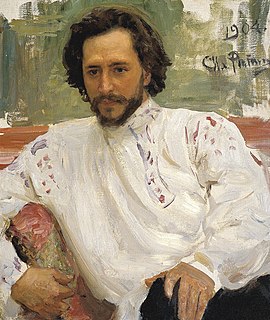A Quote by Robert J. Sawyer
If you like 'The Nature of Things,' or if you like 'Quirks and Quarks' you'll certainly like Lee Smolin's writing, and 'Time Reborn' is his latest nonfiction book, and it's an absolutely compelling read. It's worth the time.
Related Quotes
Because he did not have time to read every new book in his field, the great Polish anthropologist Bronislaw Malinowski used a simple and efficient method of deciding which ones were worth his attention: Upon receiving a new book, he immediately checked the index to see if his name was cited, and how often. The more "Malinowski" the more compelling the book. No "Malinowski", and he doubted the subject of the book was anthropology at all.
I want to be the apostle of self destruction. I want my book to affect man's reason, his emotions, his nerves, his whole animal nature. I should like my book to make people turn pale with horror as they read it, to affect them like a drug, like a terrifying dream, to drive them mad, to make them curse and hate me but still to read me.
What of course I would like to be writing is the story of the Red and White Dwarves and their Remembering Mirror, their space rocket (powered by anti-gravity), their attendant entities Hadron, Gluon, Pion, Lepton, and Muon, and the Charmed Quarks and the Coloured Quarks. But we can't all be physicists.
By Cunning & Craft is a masterpiece of writing about writing. If, like Scheherazade, you had to spin out a story under threat of death, this is the how-to book to read. It's filled with thoughtful, nuanced advice from a teacher/writer who actually writes, and writes beautifully and with great humor. The list of rejected stories is worth the price of the whole book.
I like to write without being stoned. I like to have a hit or two and then go punch up the writing. I just see different things and hear different things. But it's nice to be working from the base that I wrote originally and then come to it with a little buzz. I can have a little wine from time to time. I have a hit from time to time, but those are the only things I do.
When you first quit your regular job and you become a full-time writer, you are paralyzed with free time. You have so much free time. When you are at home, you have a guitar. There's a cat. You got to find ways to create an environment when writing is like going to work. Be efficient with the hours you put into the book. So I go there the same time, every day - like 7:30 am - and I leave around 2 pm, or longer, if I have a deadline.
It's rare that you get to read, let alone teach, an arbitrary canon of your choosing in a tight time setting, and I tore through a fairly wide range of Indian writers, some contemporary - like Arundhati Roy and Salman Rushdie - and others older, like R.K. Narayan. And I think what happened at that stage was that I was forced to take a position in my own writing style that was more fixed, as opposed to reading a book at a time and defining myself in opposition to or in awe of it.






































